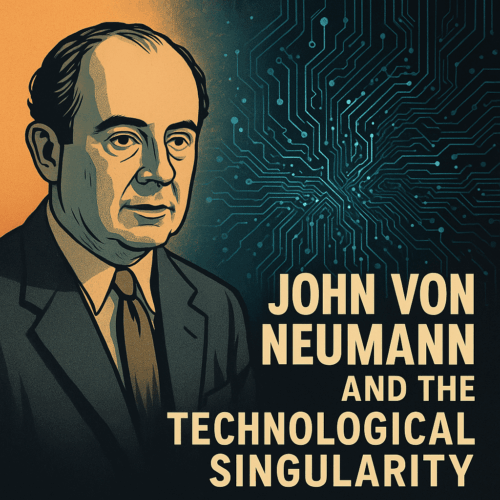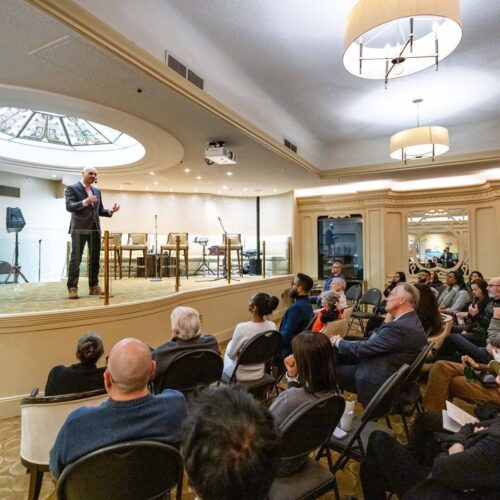Elisabeth Kübler-Ross’ Five Stages of the Singularity
Socrates / Op Ed
Posted on: March 10, 2011 / Last Modified: July 30, 2024
 After the release of a significant documentary such as Transcendent Man, our very public and well-publicized defeat at Jeopardy by IBM’s Watson, and a growing mainstream coverage of the technological singularity, I started wondering about the potential stages of humanity’s collective emotional and other reaction towards the concept of the singularity.
After the release of a significant documentary such as Transcendent Man, our very public and well-publicized defeat at Jeopardy by IBM’s Watson, and a growing mainstream coverage of the technological singularity, I started wondering about the potential stages of humanity’s collective emotional and other reaction towards the concept of the singularity.
Arthur Schopenhauer claims that “All truth passes through three stages. First, it is ridiculed. Second, it is violently opposed. Third, it is accepted as being self-evident.”
So, does this relate well to the singularity?
Let’s see. Firstly, is the singularity often ridiculed?
It seems that so far, it has been predominantly ignored, though that observation is increasingly inaccurate as we receive more coverage in the media.
Secondly, has it been violently opposed?
Well, we did have the Unabomber, even though Richard Clarke’s Breakpoint-type of violent resistance has not materialized yet and we are not yet divided into Luddites and Medievalists, or Terrans and Cosmists. This could easily change however, as artificial intelligence, genetics, robotics and nanotechnology become more and more advanced.
If one thing is sure, the singularity hasn’t been popularly embraced as self-evident.
So, within Schopenhauer’s framework, we are, at best, within or around the first stage.
But is it really so pure and simple?
Perhaps Elisabeth Kübler-Ross can provide a more subtle framework for examining our emotional attitude toward the singularity.
In her 1969 book On Death and Dying she argues that there are five stages of grief: denial, anger, bargaining, depression and acceptance.
Let’s see if those can present us with a better-adapted framework of reference:
Denial: “The singularity is not a big deal” or “Anyway, the singularity is not going to happen.”
Denial is usually temporary, especially in the face of a growing body of evidence, and is eventually replaced with a heightened awareness of the risks and the stakes (of the singularity).
Anger: “Why is the singularity happening? How can it happen to me (or to us)? Who is to blame?”
Once here, the person understands that denial cannot continue. But because of anger, she is very difficult to deal with in a rational manner. Any individual who embraces technology and progress, in general, is subject to projected resentment and jealousy.
Bargaining: “Just let me enjoy myself a little more.” “All I want is to remain human for a few more years.” “Can’t we wait (and hold progress) for just a little while?”
This stage involves the hope that one can somehow postpone or delay the singularity. Usually, the negotiation for an extended “timeout” is made with a higher power in exchange for a reformed lifestyle. Psychologically, the individual is saying, “I understand the singularity is near, but if I could just have a little more time…”
Depression: “The singularity sucks!”; “We are all going to die… What’s the point?”; “The machines are so much better at everything… resistance is futile… so, why go on?”
During the fourth stage, the person begins to understand the impending singularity. Because of this, she may become silent, refuse visitors, and spend much of her time crying or grieving. This process allows the depressed individual to overcome her sense that “biology is destiny” and embrace the fact that human is a process, not a defined entity. For this reason, it is not recommended to attempt to cheer up an individual in this stage. It is essential for a person to come to terms with the fact that change is the only certain thing.
Acceptance: “The singularity is cool.”; “I can’t fight progress; I may as well prepare for it.”; “If I can’t defeat the machines, I might as well join them.”; “I can live forever!”
In this last stage, the individual begins to come to terms with the potential upsides of the singularity and focuses on them rather than the negatives.
It is important to note that Elisabeth Kübler-Ross warned that these steps do not necessarily have to come in the above order. Nor are all steps experienced by all people. (Though she believes that one will always experience at least two.) Also, people often experience several of the above stages in a “roller coaster” effect – switching between two or more stages, returning to one or more several times before working through it entirely.
Finally, it is important that futurists and techno-experts do not force understanding on others. The process is highly personal and should not be rushed or lengthened. One should merely be aware that the stages can and most likely will be worked through, and the ultimate stage of “Acceptance” will be reached.
***
So, what do you think? Can we apply the Kübler-Ross framework to the singularity? If yes, then what stage are we at currently?
If not, why not? And how about any alternatives?








